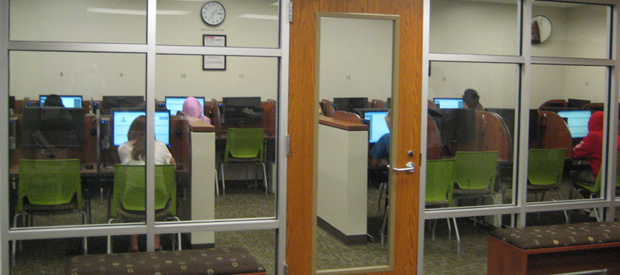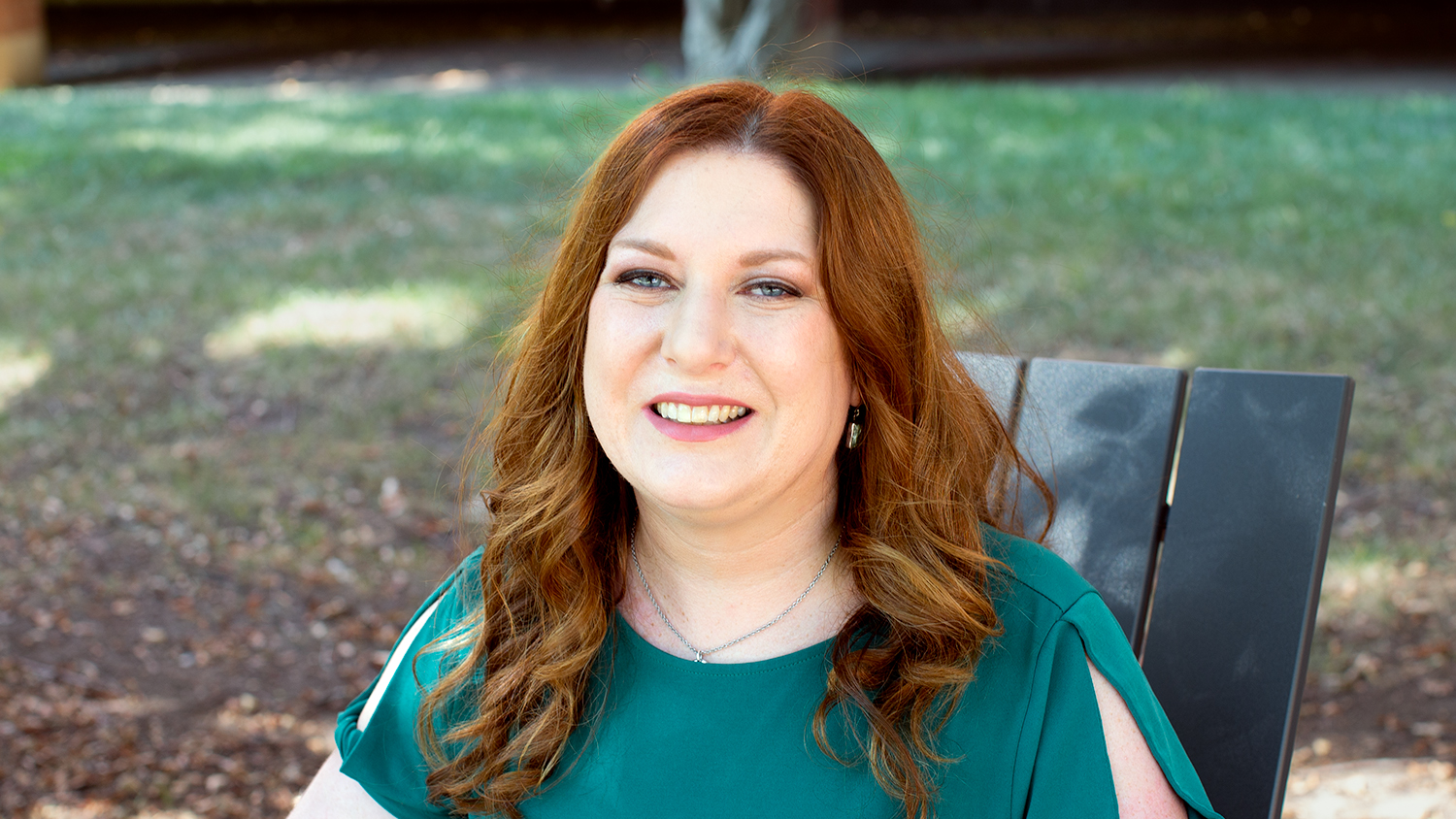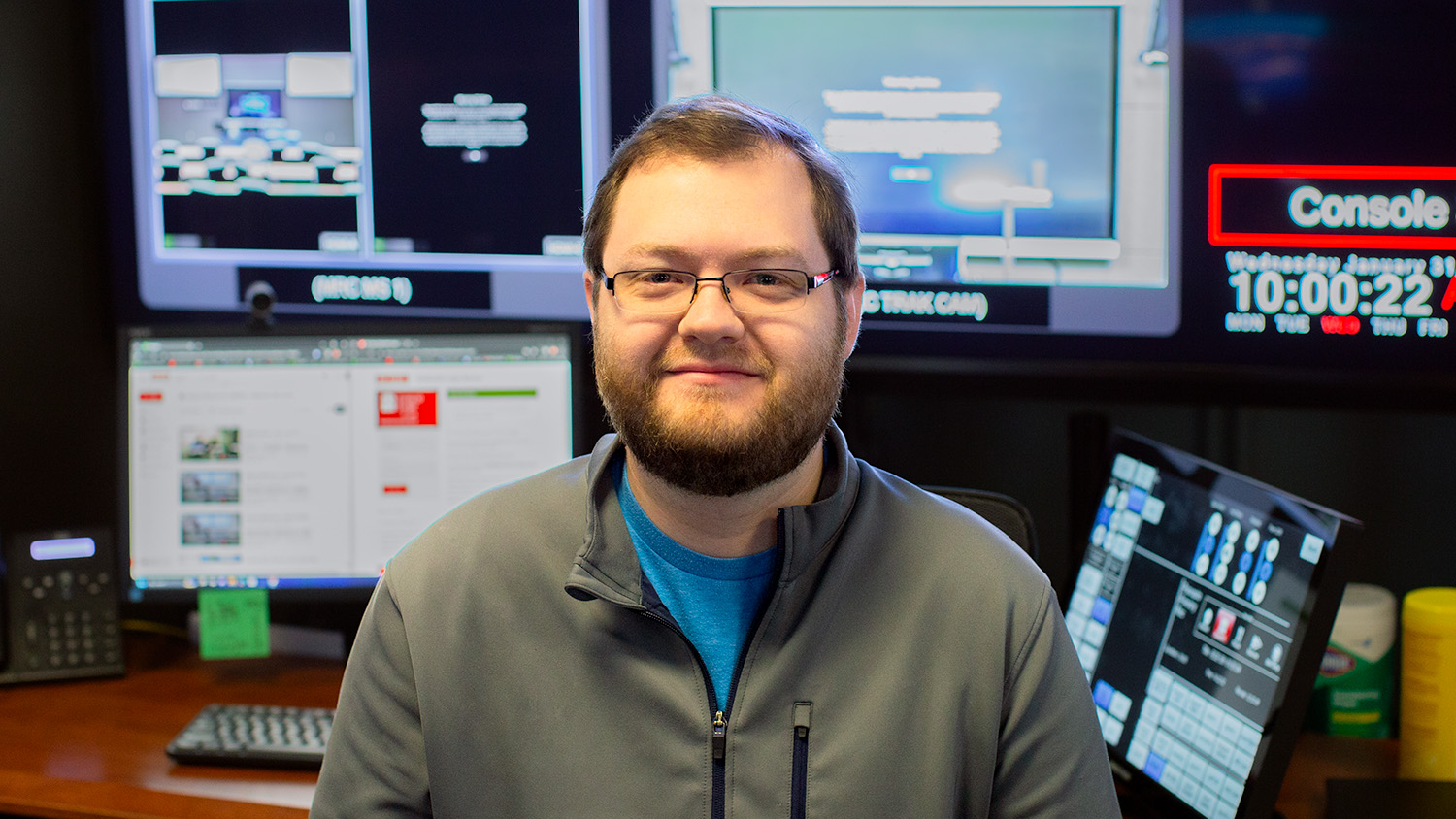DELTA Doubles Proctoring Potential with Cox Hall Testing Facility

To keep up with a rising demand growth for exam proctoring, DELTA opened a new test proctoring facility near D.H. Hill library this year. The number of exams proctored by DE Testing Services is expected to rise from last year’s 23,000 to about 30,000 by the end of this year, a 30% jump.
This facility, found on the second floor of Cox Hall, is used to proctor exams for distance education and some on-site courses. An alternative to the Venture II facility, it provides students a second, potentially more convenient location to take their exams. It was created in a partnership between DELTA and the college of Physical and Mathematical Sciences (PAMS).
Despite a few setbacks, the facility was open for operations by the end of the spring semester this year. “1,094 exams were proctored in the first three weeks we were open,” said Rebecca Swanson, associate vice provost for Distance Education. “It was put to good and immediate use.”
In addition to proctoring DE exams, the partnership with PAMS arranged for proctoring of a few fact-to-face courses. Currently, two face-to-face PAMS courses are being proctored with about 100 students each, but the number of PAMS proctored exams will be growing rapidly.
The new facility was created to keep up with demand while ensuring the integrity of the testing environment, Swanson said. For example, the Engineering Online program finds that having a testing facility in Cox Hall is much more convenient because most of their administration is in Page Hall, two buildings over, Swanson said.
“It would be very beneficial for the person already on campus and we’re working to extend hours during peak exam times,” she said. Because the Venture II building closes down at 7 p.m., there isn’t much opportunity for nighttime testing.
Another goal was to provide accommodation for students with disabilities and special needs through a specially-designed room that incorporates layout, equipment, and software recommendations from the Disability Services Office. According to John Pugh, assistant director of DELTA testing services, having a designated special needs room will make a huge difference. While there is a separate office used for special needs students in the Venture II facility, the on-campus one is significantly easier to get to and manage.
The new location is convenient for students who live on campus or are already nearby. “It’s a bit more of a time commitment to come to Centennial,” Pugh said. To address potential problems finding the new room, he said they put a lot of signage leading to the room to make it easier to find.
Bringing it all Together
Plans for construction were agreed upon in the summer of 2010 and construction began that fall. Swanson said that the biggest challenge in the room configuration was optimizing it to maximize the number of seats and exams going on while maintaining “a smooth flow of students going in and out.”
The facility is now fully furnished with a 36 seat main testing room, small lockers, a front desk, and a smaller testing room for special needs students. In addition to standard seating, the main room has two bariatric chairs capable of holding up to 700 pounds.
Great care was taken when choosing where and what to place in the room. When setting up the room, they talked to vendors for advice on furnishings, carrel arrangement, and monitor placement. The testing room was designed with accessibility in mind, but it is also meant to discourage cheating.
Careful Considerations
To discourage and prevent cheating, the rooms in Venture II and Cox Hall were designed to enable proctors to monitor student activity. “We let the students know that the rooms are under surveillance,” said Swanson.
She pointed out the posted notices of video surveillance and the cameras on the ceiling. Visual deterrents such as these help establish a professionally monitored environment. “The more obvious the better,” she said. In addition to posted notices, visible cameras and onscreen alerts, the new facility features a glass wall to the back of the testers.
The area on the same side of the room as the glass wall is left empty to increase visibility. According to Pugh, the wall adds a nice sense that somebody is watching you. “You can really see a lot of what is going on,” he said.
So far, the room’s layout and the glass wall have proven effective as a cheating deterrent. It allows the proctors to better monitor the testing lab for suspicious behavior.
To get a closer look proctors can control the ceiling mounted cameras and check the student’s computer screen with a program called NetSupport. In addition to recording what happens on-screen, proctors can also capture the use of unauthorized materials.
“There have been some studies that show a small number will never cheat, a small number always cheats, and a big group in the middle will sometimes cheat,” he said. “I’m really trying to concentrate on that group in the middle. I want to make it less opportunistic for them to cheat.”
While it’s important to discourage cheating and let students know that they’re being watched, Pugh says that he doesn’t want to instill a sense of paranoia. “I just want them to be aware,” he said.
Looking Ahead
Judging from the continued demands for exam proctoring, the Cox Hall facility has proven successful. “The main campus room is being filled first and then the spaces here (on Centennial Campus) get filled,” Pugh said.
According to Pugh, DE Testing Services is currently proctoring about 11,000 exams each semester. He predicts that number to increase now that they’ve doubled their number of seats. He anticipates that the Cox Hall facility will be proctoring for several more PAMS courses by the spring 2012 semester.
To handle this increased workload, they plan to use graduate students to help proctor PAMS exams. These will be the same students who teach undergraduate sections and labs, Swanson said.
Looking ahead, John Pugh is ready to adapt to the upcoming changes. “The biggest challenge is going to be when we roll out those PAMS face-to-face exams and start working with people who are unfamiliar to proctoring exams,” he said.
“It’s been an interesting challenge,” Pugh said. “When we first started with DELTA we were at the McKimmon Center in one little room with about 10 seats. Then we moved to Venture III and we had 18 seats.”
“We moved here (Venture II) and had 36 seats and now we’ve opened a new facility and doubled our size to 75 seats.” And he doesn’t think growth will stop anytime soon. “That will continue to go up in the future I’m sure… It won’t be long until we’re proctoring for over 200 courses a semester,” Pugh said. “That’s a lot of plates in the air… but it has been fun.”
Links:
For more information about DE Testing Services
- Categories:


